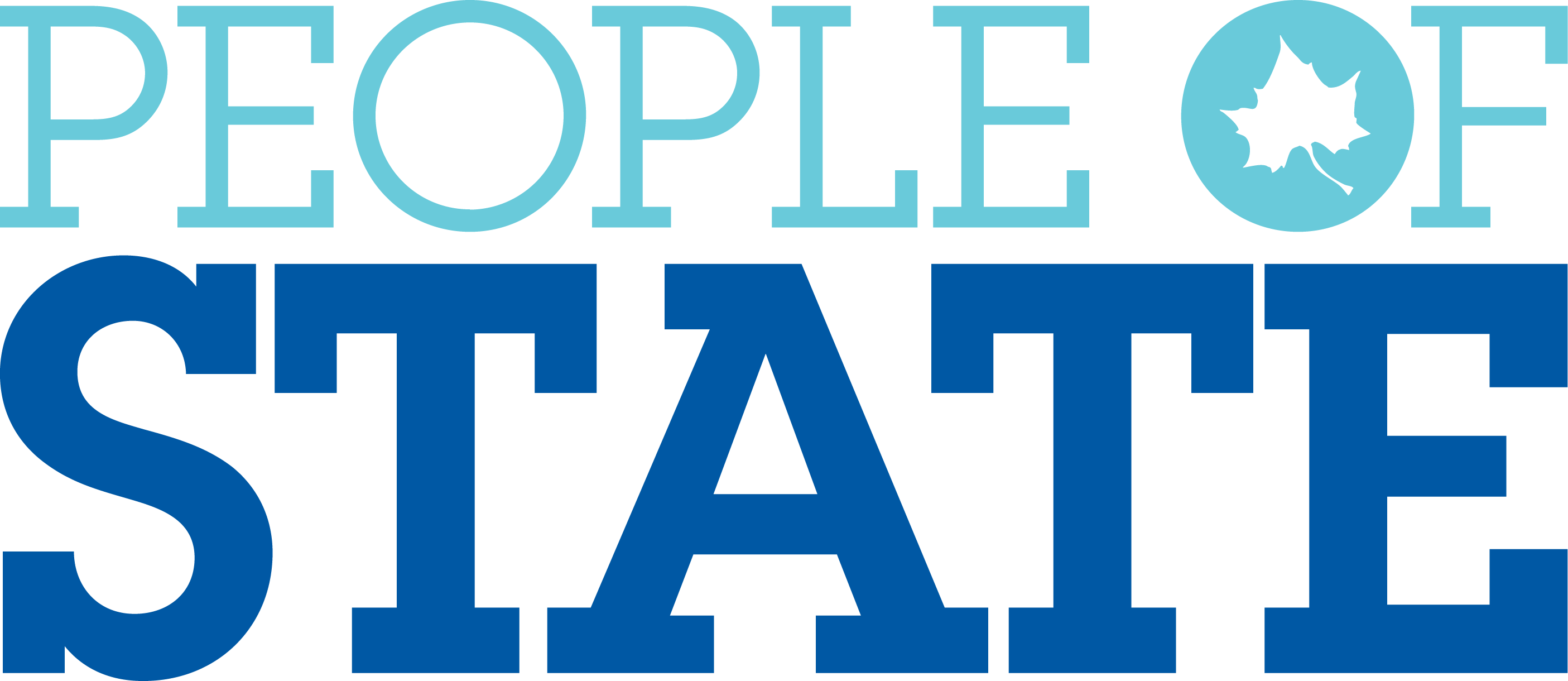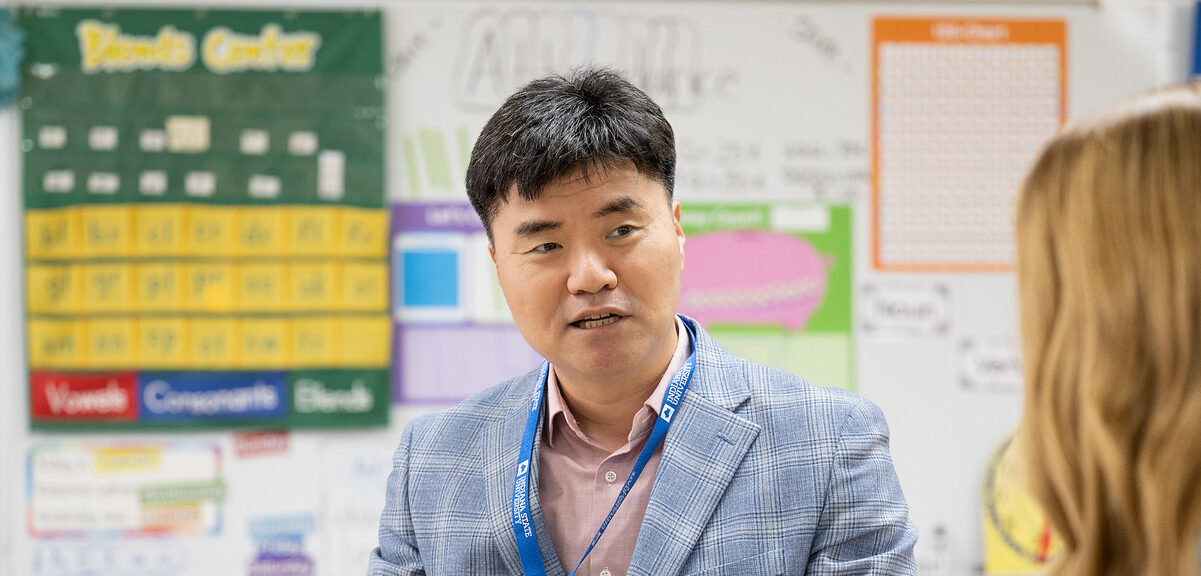
Yong Joon Park
By Kasy Long
May 18, 2023
Elementary Education Professor
at Indiana State University
When students graduate from high school, they often thank their parents for their support and encouragement. But they also thank the teachers who inspired them to follow their dreams. Teachers instructed them about reading, writing, history, mathematics, science, music, art, and imparted lessons on teamwork, leadership, and responsibility. Students remember these instructors long after they graduate.
At Indiana State University, education majors prepare to become this kind of influential mentor to students. Sycamores observe their professors to learn creative, hands-on approaches to teaching. They aspire to become similar teachers for their students.
The Bayh College of Education prepares future teachers with engaging instruction and field experiences in elementary and secondary schools in rural, suburban, and urban areas. Students are provided with a behind-the-scenes look at classroom environments, and they understand what they can expect in their classrooms following graduation.
“There are numerous resources [in the Bayh College of Education] and our students figure out the pedagogy that will work for them,” says Professor of Elementary Education Yong Joon Park, Ph.D.
Park understands the demands of “developmentally appropriate practice” to interact with young children. While earning his doctorate degree from the University at Buffalo [New York], he worked at the university-affiliated laboratory school there. As a master teacher, he has worked with culturally and linguistically diverse students, their parents, and teachers.
In his classrooms, Park has learned that hands-on engagement works best with students. Children learn through visual imagery, playing games, music, fine arts and crafts, and other activities. Park uses this same approach as he instructs Sycamores in the Bayh College of Education. He develops activities using visual data, muscle movement, creativity, and other ways for students to learn, in addition to lectures and textbook material.
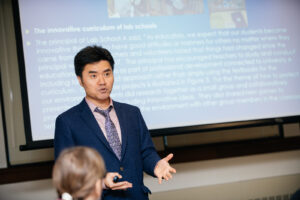
Park’s classes have been enhanced through music demonstrations, in which he plays the guitar and uses American sign language to teach songs; watercolor art portraits; mathematics games; vocabulary exercises; and other activities Park describes as “brain breaks.” These engaged activities interrupt lectures but provide helpful lessons relevant to discussion topics and other lesson plans.
“It’s important for students to work together on activities and learn from each other. I have to be creative in the classroom, and my students figure out how they can be creative in their future classrooms,” Park says.
The Bayh College of Education also prepares students with field experiences in elementary school classrooms. Park and his students frequently visit Dixie Bee Elementary School, in the Vigo County School Corporation, so his students can witness a classroom setting. In the past, Park has brought traditional Korean hanbok attire to educate young children about Korean cultural traditions and history.
“I enjoy sharing my Korean culture with the community, especially with children. I share with pride because Korean culture is very unique and has combined traditions,” explains Park, who has also developed a Korean Club at Dixie Bee Elementary School and has led the Terre Haute Korean Language Center in Terre Haute. At Indiana State, he previously served as Vice Chair of the Asian & Pacific Islander Council. The council provides leadership and support in raising issues of major concern in the Asian Pacific Islanders’ academic community.
“I’m proud to represent my culture in the community and at Indiana State,” Park says.
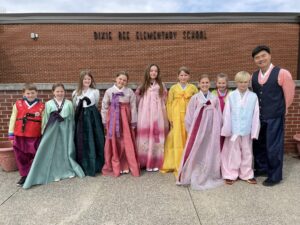
Yong Joon Park with students at Dixie Bee Elementary School.
Teachers frequently look ahead to the future, and Park paves the way for future teachers. The University has a long history of training teachers, and more than 40 percent of teachers in the state of Indiana earned their degrees from Indiana State.
“Teachers change someone’s future. They impact their students. Those are the kind of teachers we train at Indiana State,” Park comments.
As Park knows, teachers go the extra mile to make a difference in their students’ lives. They think outside the box with their lesson plans. This creative teaching begins at Indiana State – because real teachers wear BLUE!
